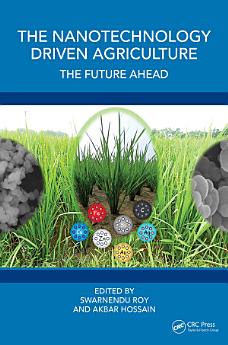The Nanotechnology Driven Agriculture: The Future Ahead
About this ebook
This book focuses on the application of nanotechnology for enhancing crop production through the application of nanofertilizers or nanocomposites. Several avenues of nanotechnology are beneficial in improving crop productivity in a sustainable manner, which has been presented in a comprehensive way. The book also delves into the mechanistic view of nanoparticle functioning and its role in stress alleviation. In addition, the book presents some recent insights into the application of nanotechnology for post-harvest management, stress tolerance and usage as nanobiosensors.
Broadly, the book will encompass the following advances in the field, distinguishing it from other published volumes. The salient features include:
· Role of nanoparticles in improving abiotic stress tolerance in plants.
· Role of nanoparticles in protection against pathogens and pests.
· Mechanism of nanoparticle-induced plant responses.
· Synthesis and modification of nanoparticles to enhance their biological efficacy.
· Prospects of nanofertilizers, nanoformulations, nanopesticides, etc., and their beneficial attributes.
This book, therefore, presents this emerging topic and the most recent innovations in this field for postgraduate students, researchers and faculty members working in the fields of plant science, microbiology, biotechnology, agricultural sciences, etc.
About the author
Swarnendu Roy, PhD, is presently working as an assistant professor at the University of North Bengal, Siliguri, India. He has more than 13 years of teaching experience. He has published more than 40 articles in reputed journals with high-impact factors, such as Water Research, Scientific Reports and many others. He has recently edited two books published by Springer and has also published several book chapters in edited volumes to date. Presently, he is actively engaged in research topics encompassing stress management in plants by engineered nanoparticles and the synthesis of starch-based biofilms and edible coatings. He is presently supervising four research scholars. He received International Travel Support (ITS) from DST, Govt. of India in 2019 to present his research paper at the International Conference on Integrative Plant Physiology in Sitges, Spain. He is a life member of prestigious societies such as the Indian Science Congress Association and Association of Food Scientists and Technologists (India).
Akbar Hossain, PhD, is working as a senior agronomist at the Bangladesh Wheat and Maize Research Institute. He has edited/is editing several books in his research areas, which include plant stress physiology, maize production and uses, input use efficiency for food and environmental security and plant defense mechanisms. He has also authored more than 200 journal articles related to agronomy, plant breeding, plant physiology, nanotechnology, etc. He is serving as a Research Supervisor of the M.Sc. students in Agronomy and Soil Science and Irrigation Engineering at Hajee Mohammad Danesh Science and Technology University in Dinajpur, Bangladesh. He is also very interested in the prospects of nanotechnology in agriculture in the modern era of climate change.





